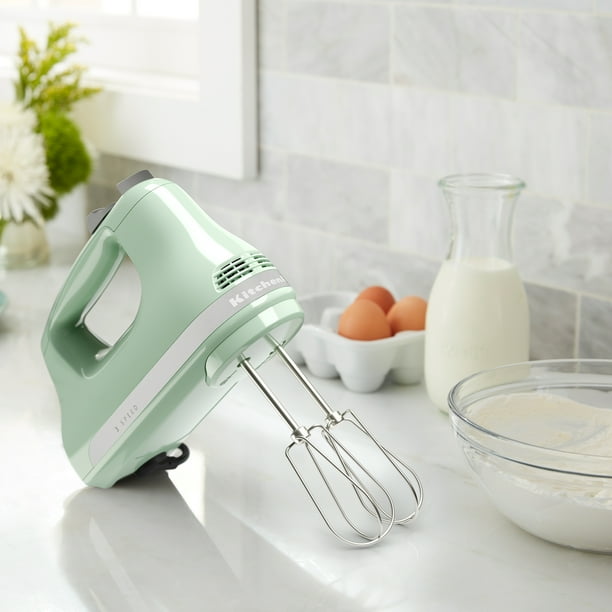Does Pre-Salting Make for More durable Scrambled Eggs and Omelets?
“I’ve heard that once you add salt to eggs too far prematurely, it might presumably smash their texture and toughen them up. When must I salt my eggs?”
I, too, have heard this story. Really, it was a legendary chef (who shall keep nameless) who suggested me various years up to now, “Don’t add salt to your eggs until correct sooner than you cook dinner dinner them, or it will possibly skinny them out after which toughen them up.” With out questioning it, I’ve dutifully adopted his advice ever since. (I am, nonetheless, ready to call out Gordon Ramsay for giving the an identical advice. Since he’s made a occupation of shaming others, he fully deserves a attainable lashing proper right here.)
As everyone knows by now, it isn’t uncommon for such hand-me-down kitchen information to crumble beneath scrutiny. Would this little tidbit of cooking lore keep up and perpetually vindicate Mr. Ramsay? It’s a easy ample question to take a look at, so I started cracking some eggs.
Egg Fundamentals
Sooner than we get to my check out, let’s analysis some egg fundamentals that may help us understand this increased. So, what exactly happens after we cook dinner dinner an egg?
To simplify, let’s think about the egg whites (a.okay.a. albumin), which might be principally made up of water and quite a few proteins. Of their common state, these proteins are all folded up on themselves and tend to stay away from each other. Take into account them like a gaggle of extraordinarily delinquent people who would fairly curl up into fetal place on the bottom than work collectively. If light rays have been a gaggle of joggers teaching for the marathon, and easily occurred to come back again all through this odd, balled-up bunch, they’d have a easy time working spherical and via them. That’s the reason raw egg whites are clear: light has little trouble lowering a path by the use of minimal obstacles like free-floating, scrunched-up proteins.
Nevertheless there are strategies to change the habits of our uncommunicative proteins. The plain one, in any case, is in order so as to add heat. Heat works on the proteins throughout the egg white rather a lot the way in which wherein alcohol may match on our group of uncommunicative people. Instantly, they’re ready to stretch out, work along with these spherical them, presumably even be part of fingers and hug. Nevertheless throughout the case of the proteins in albumin, as quickly as that hugging and handholding begins, it nearly stays that method, like a crowd of people in a perpetual, iron-gripped embrace.
This turning into a member of of proteins is what companies up the egg and turns it opaque, since light can not get earlier these interconnected proteins as merely—merely take into consideration the joggers making an attempt to get by the use of a gaggle of drunkards who’ve handcuffed themselves collectively. The additional heat you add, the tighter these protein bonds get, inflicting the egg to company up more and more extra. Lastly, once you overcook the eggs, the bonds will get so tight that the proteins start squeezing out the water—a phenomenon you will have seen once you’ve ever hammered eggs truly laborious. (Actually, a cooked egg wouldn’t have to stay that method: It is doable to un-cook an egg and return the sturdy whites to their genuine clear, fluid consistency, nevertheless it requires together with toxic chemical substances that may render the egg inedible.)
Other than heat, there are completely different points that will promote this protein linkage. One is acid, which is why some people say together with a splash of vinegar to egg-poaching water helps set the white further shortly. One different is salt. In accordance with Harold McGee’s On Meals and Cooking, when salt dissolves into egg, it separates into charged ions that change {{the electrical}} ambiance ample to encourage coagulation. Based on that, it could seem logical to conclude that eggs with salt will coagulate further shortly, and subsequently be further liable to toughening.
The Check out
To look out out what actually happens when you add salt to egg, I scrambled 5 side-by-side batches. Each batch contained three eggs and 1/8 teaspoon kosher salt, with the one distinction being how prolonged each was uncovered to the salt sooner than cooking: 60 minutes, half-hour, quarter-hour, 5 minutes, and 0 minutes.
The result was that all the scrambled eggs have been virtually indistinguishable from each other. If one thing, the eggs that sat with salt for the longest have been further moist and tender than the eggs which were uncovered to salt for a lot much less time, though I cannot stress ample that the variations have been extraordinarily delicate.
Whereas salt positively wouldn’t harm the eggs (and may even help), there’s no question {that a} very highly effective difficulty when cooking eggs is the cooking strategy itself. Throughout the case of scrambled eggs, which means using mild heat and taking the eggs off the heat considerably early to account for carryover cooking.
Nonetheless, it appeared uncommon that my checks indicated that, if one thing, salt can improve the texture of the eggs, which is the exact reverse of what we’d rely on from an ingredient that promotes coagulation. I turned once more to McGee for an proof. In accordance with him, the reason that the salt wouldn’t toughen the eggs is that, whereas performing as a catalyst to make proteins bond at lower temperatures, it concurrently options as a buffer, stopping the proteins from getting too shut to 1 one other and reducing the hazard of water being squeezed out.
Primarily, to return to my analogy, salt is form of like a therapist who’s been launched to our socially-challenged, group, with the mission of getting them off the booze whereas educating extra wholesome strategies to be nice—nevertheless not too nice—with each other. I might say Gordon Ramsay could presumably do with considerably little little bit of pre-salting in his life too, should you already know what I indicate.




:max_bytes(150000):strip_icc()/__opt__aboutcom__coeus__resources__content_migration__serious_eats__seriouseats.com__images__20110708-seriously-asian-duck-egg-primary-dcf471f012b845d8b24f38a1bc68ddd7.jpg?w=1200&resize=1200,0&ssl=1)
:max_bytes(150000):strip_icc()/__opt__aboutcom__coeus__resources__content_migration__serious_eats__seriouseats.com__images__2014__05__20140508-asian-eggs-with-easter-eggs2-79905824dae141ef8c5f12fdcc663b93.jpg?w=1200&resize=1200,0&ssl=1)
:max_bytes(150000):strip_icc()/20241001-SEA-BreakfastCasserole-FredHardy-Hero2-11-ea3e2fbd48c44a9ebb2700d9c34f8aa5.jpg?w=1200&resize=1200,0&ssl=1)